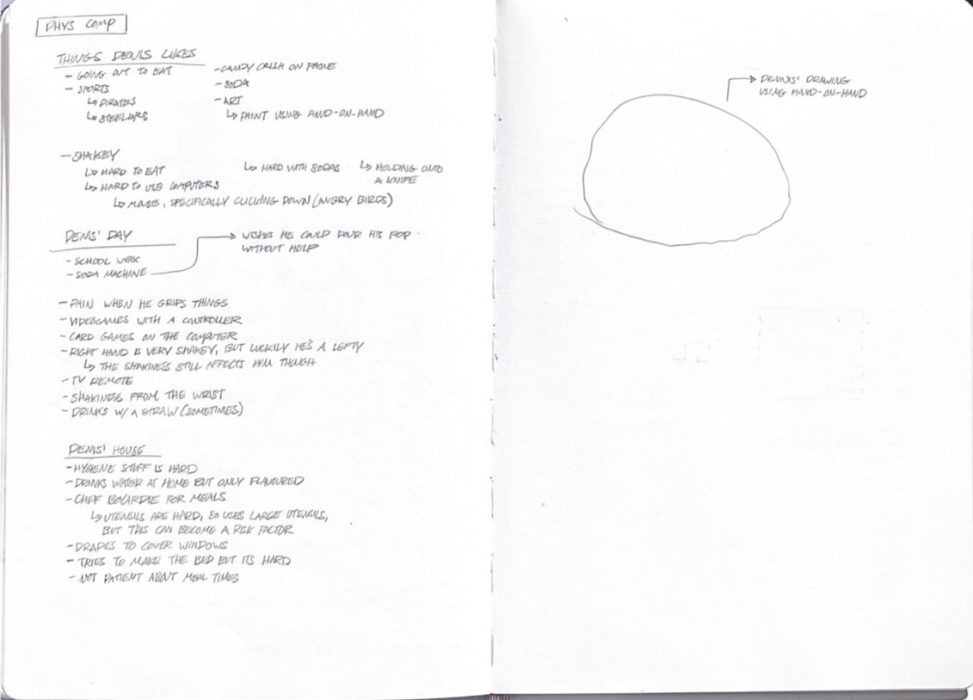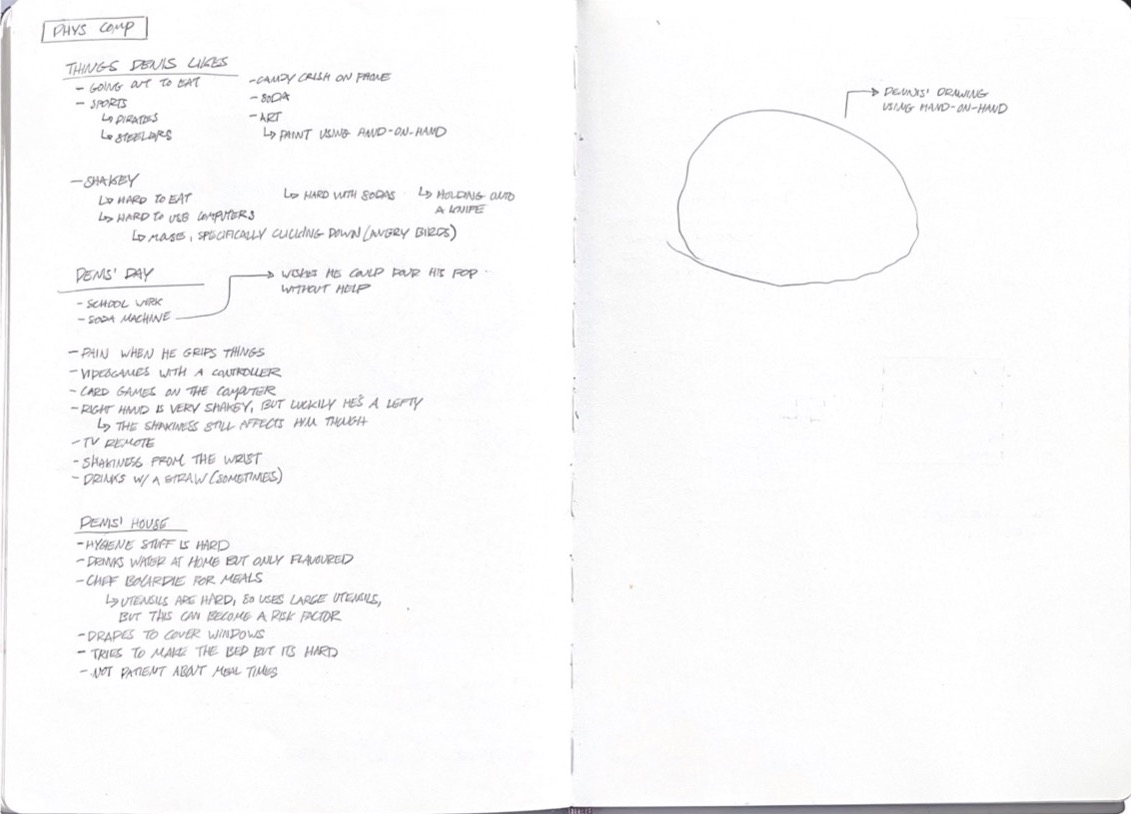
Introduction
Our meeting with Dennis sought to explore some difficulties that Dennis has in his life—difficulties that we might be able to help overcome with the creation of a bespoke device. Dennis is a 67 year-old disabled man, facing both the challenges of disability and old age, including being wheelchair bound. The information that we gather through this need finding interview will hopefully guide our functioning device to effectively assist Dennis in his daily routine, driven solely by his wants and needs. At this meeting was Dennis, one of his caretakers, Bill, Elise, Harry, and Remy. The meeting was held at the CLASS facilities in Pittsburgh on Tuesday, November 1.
Agenda
Prior to this meeting, our group decided on the following subjects to complete during the interview: we wanted to first learn about Dennis (i.e. age, disability, interests, passions), we wanted to then transition to introducing our project to him to give him insight as to what we hoped to accomplish, and then we were to brainstorm ideas as a collective with regards to improving his quality of life. We decided to stray away from a more strict agenda for the meeting and instead focus on the quality of response.
Meeting Summary and Takeaways
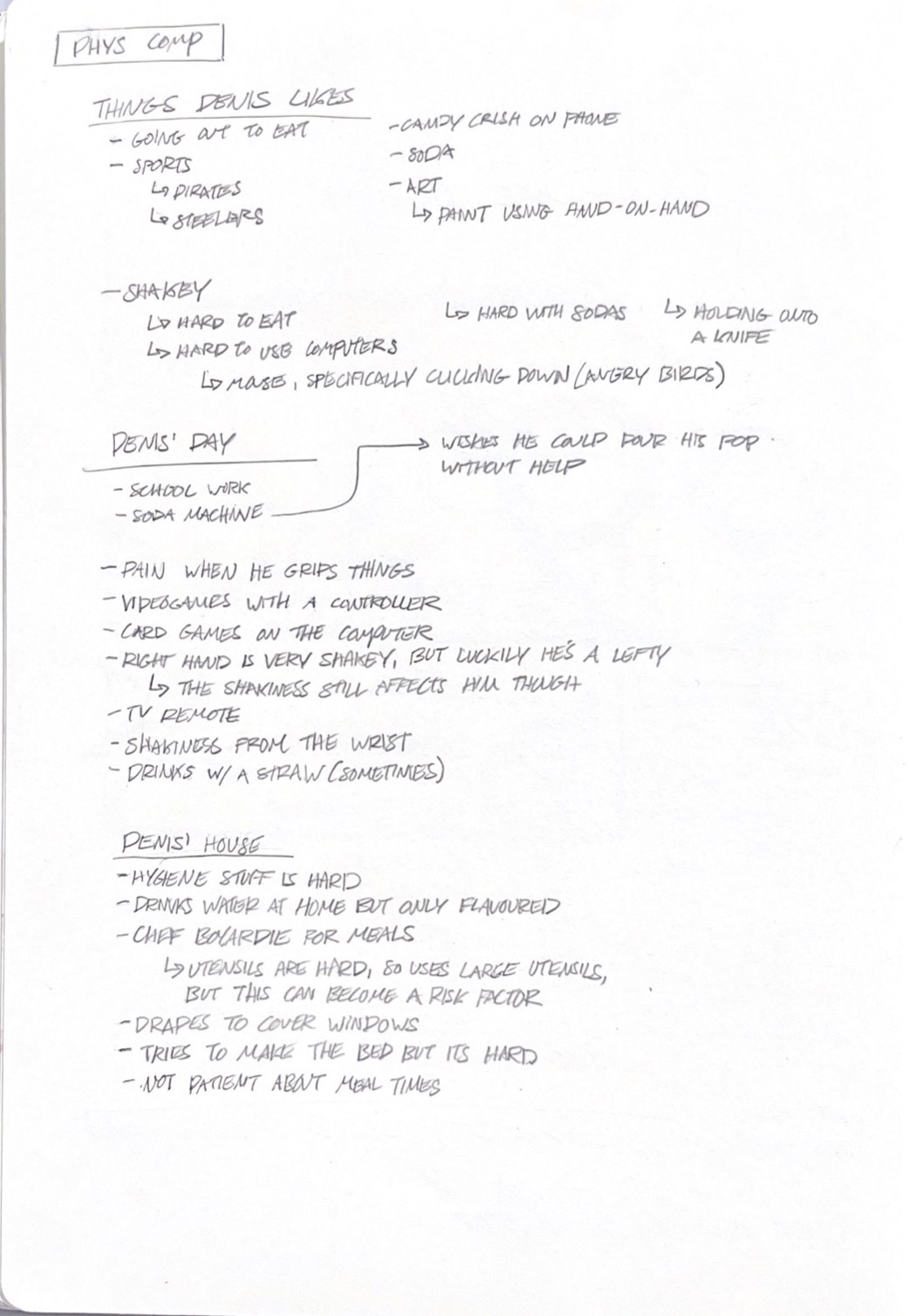
Notes from the interview
Our meeting with Dennis went fairly well. We began by asking Dennis about his interests, which notably included: going out to eat, watching sports games like the Pittsburgh Pirates and the Steelers, playing “Candy Crush” (which we later found out was Angry Birds), soda-pop, and art. This discussion naturally led into what gives Dennis trouble in doing these activities and enjoying these things. Dennis, besides being wheelchair bound, suffers from a lot of shakiness in his hands; Bill believes this to be symptoms of arthritis. For example, for Dennis to do art, he must use a “hand-on-hand” method, where he will use another person’s hand as stability on the tool, but will guide their hand with his. This shakiness also manifests as pain when Dennis tries to grip things or press small buttons, making things like using a remote or a video game controller difficult.
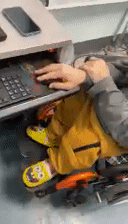
Dennis struggling with computer mouse
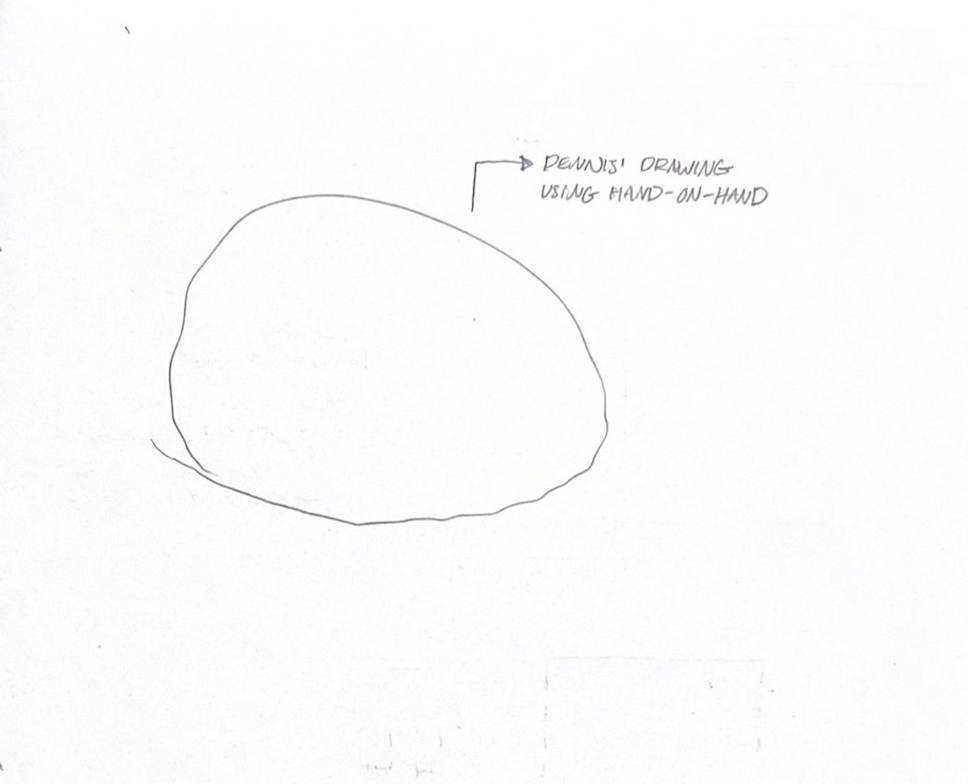
Moving forward, we asked Dennis how his typical day goes. Dennis likes to try to make his bed, which he finds to be difficult. Dennis will also do “school work” and work at the “pop machine”. He very much enjoys soda-pop and wishes he could pour it himself. Finally, at meal times, Dennis tends to be a bit impatient with his caretakers and likes to eat his food quickly, but is limited in how much he can help around the kitchen.
Overall our meeting went as well as possible despite communication issues with Dennis and we were able to identify various struggles and challenges that he faces on a daily basis. Bill, his caretaker, also gave us good insight on Dennis’ habits and his overall behaviors. It was apparent that he was well adapted to his limitations and has a lot of solutions to the challenges he faces.
Post Interview Thoughts and Discussion
This interview left us, as a team, a bit confused on how to approach the few complexities that Dennis presented to us. The conversation with him did involve a lot of backtracking and repetition of discussing certain topics; however, we gained true insight into what matters to and are the passions of Dennis. While not as smooth or concrete as we were hoping, the meeting gave a lot of insight into who Dennis is as a person (e.g., an independent, video gaming, soda loving human being). With this being said, the challenges within Dennis’ life that we could obtain are difficult to apply toward a project within physical computing. One of Dennis’ main issues is that his hands are quite shaky and gripping objects could be either difficult or painful due to aging. These issues are inherently mechanical, leaving us as a team a bit perplexed as to what project to create for him. We believed the discussion was overall a success, but we did wish to have more concreteness with regards to the struggles Dennis faces.
